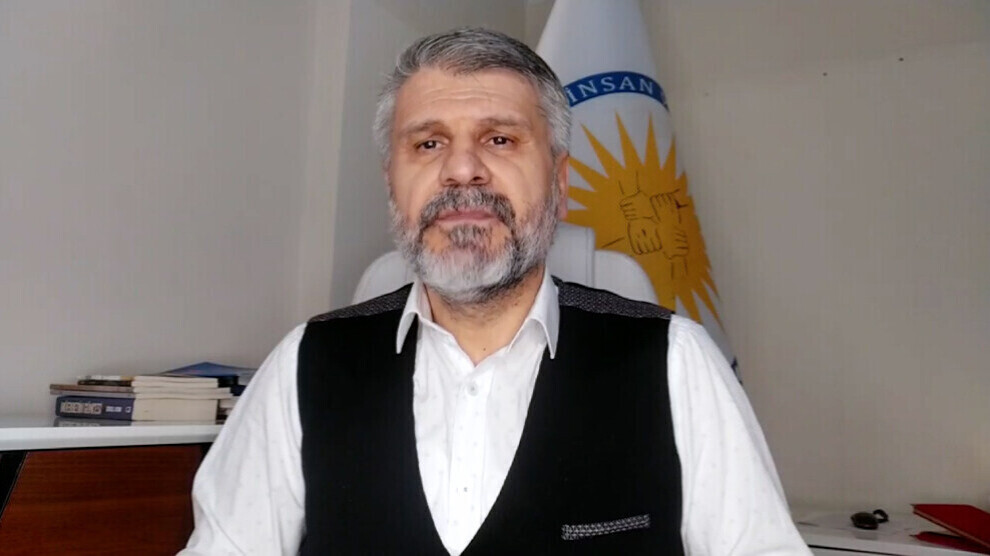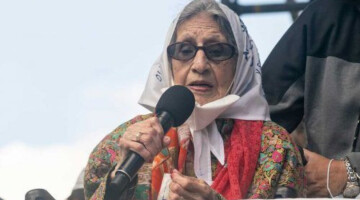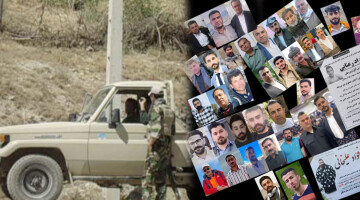Ahmet Kaya, co-chair of the Human and Freedom Party (Partiya Insan û Azadî - PIA), highlighted the importance of Mr. Öcalan’s “Call for Peace and a Democratic Society,” and said that the government must establish a transparent and sincere dialogue with Kurdish political actors, include socially legitimate actors in the process, and set out a clear roadmap. He stated that resolving the Kurdish question has become an unavoidable necessity for building a democratic future.
Cautious approach of Kurds towards the state is understandable
Ahmet Kaya pointed out that Turkey’s century-long history regarding the Kurdish question, along with the state's untrustworthy approaches, has deepened the Kurdish community’s suspicions towards the state. He said:
“Concerns about the process are legitimate. However, it is important to remember that there are also strong reasons to remain hopeful. Especially for the Kurds, the mere existence of the Republic of Turkey itself has historically been a source of concern. Looking back at the hundred-year history of the Republic, it is clear that sincerity, trustworthiness, and a solution-oriented approach have rarely characterized the state’s policies toward the Kurdish issue. Therefore, it is entirely understandable that Kurds and the structures representing Kurdish politics approach the state with caution.”
International and regional conditions are pressuring Turkey
Ahmet Kaya noted that the international context and conditions are forcing Turkey to adopt a different position on the Kurdish issue. He said: “The balance of power in the Middle East has shifted, Iran’s influence in the region has declined, Russia has weakened, and divisions between the United States (US) and Europe have deepened. Meanwhile, Israel’s aggressive actions against Palestine have weakened militia forces across the region. These developments have made it necessary for Turkey to reposition itself within the regional equation. Therefore, the state's approach to the Kurdish issue is now shaped not only by domestic political parameters but also by regional and international factors.”
The need for a legal framework
Ahmet Kaya stated that romantic notions such as “a thousand years of brotherhood” must now give way to more realistic policies regarding the process. He said: “The foundations of the state’s moves are based not on romanticism, but on necessities, strategic interests, and sustainability. Therefore, it is important for the actors involved in the process to act with this awareness.”
Kaya emphasized that one of the most crucial steps for the process is establishing a legal framework, underlining the need to clarify procedures for disarmament and the status of political prisoners. He said: “The state must enact legal regulations to ensure the healthy progress of this process. Right now, the release of political prisoners, especially seriously ill prisoners, and the regulations concerning them, would be a significant gesture of goodwill.”
Ahmet Kaya stressed that for a declaration regarding the dissolution of the Kurdistan Workers’ Party (PKK) and the laying down of arms to materialize, Mr. Öcalan’s legal status must no longer be a matter of dispute. He said:
“Abdullah Öcalan is an actor leading the process. How can his current conditions allow him to do so? For him to be effectively involved in the process and to lead it in a healthy manner, communication channels must be open. In addition to improving his legal status, it is necessary for him to be in contact with all actors and parties involved in the process. This situation must now be given a legal framework. Some recent developments send positive signals. Meetings held at the Ministry of Justice level and statements made, particularly by Pervin Buldan, can be interpreted as signs that some improvements might be forthcoming.
This process should not rely on individual initiatives; it must be conducted through institutional structures. Erdoğan’s direct involvement in the process since April indicates that the state is participating in an institutionalized manner. At this point, it is of vital importance for the opposing side to also take part with similar institutional representation. Otherwise, the process will become fragile and unsustainable.”
Ahmet Kaya stated that the process has been positively embraced by the public and that a great responsibility now falls on the opposition. He continued: “Although the Republican People's Party (CHP) has reacted positively to the process, it does not have the capacity to actively guide it. Internal conflicts, its positioning against the government, and social balances make it difficult for the CHP to act as an influential player in this matter. However, it can be anticipated that the steps taken by the state regarding the process will generally gain legitimacy within society.
The public tends to broadly accept the process initiated by the state. The Kurdish side must approach the process not only with caution but also with a constructive and self-confident attitude. While the distrust stemming from historical experiences is understandable, the conditions of today are different from those of the past. Ignoring this difference could lead to a deadlock from within the process itself. It is important for Kurdish actors to maintain their concerns while at the same time adopting a stance that prioritizes the will for a solution.”
This process is an important opportunity for Turkey’s democratization
Ahmet Kaya stated that the political, economic, and social crisis that emerged after the July 15 coup attempt has deepened the need for the state’s restructuring and democratization. He said: “Structural problems such as economic stagnation, the erosion of meritocracy, and the collapse of the judicial system have turned the resolution of the Kurdish issue from a security matter into a democratic necessity.”
Kaya emphasized that resolving the Kurdish question holds great significance not only for Turkey but also for all the peoples of the region and for international security and concluded: “The steps taken by the Turkish state and the Kurdish movement during this process will strengthen peace in the region and ensure social stability. For this process to succeed, it is essential to establish a legal and institutional framework, for both the government and the Kurdish movement to maintain a prudent approach, and for internal and external factors to be assessed correctly. There are hopeful signs. This process represents an important opportunity for Turkey’s democratization and a critical step toward regional stability.”














